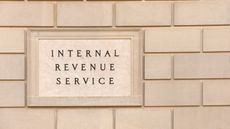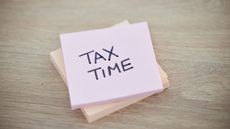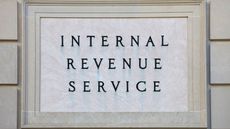New Mexico State Tax Guide
State tax rates and rules for income, sales, property, fuel, cigarette, and other taxes that impact New Mexico residents.
- (opens in new tab)
- (opens in new tab)
- (opens in new tab)
- Newsletter sign up Newsletter

Bottom Line
Middle-Class Families: Tax-Friendly (Go to the Kiplinger Tax Map for Middle-Class Families)
Retirees: Mixed Tax Picture (Go to the Kiplinger Tax Map for Retirees)
From a tax perspective, there's some good news and some bad news for New Mexico residents. The state has an income tax with a top rate of 5.9%, but your income taxes are waived altogether if you can hang in there until you're 100.

Sign up for Kiplinger’s Free E-Newsletters
Profit and prosper with the best of expert advice on investing, taxes, retirement, personal finance and more - straight to your e-mail.
Profit and prosper with the best of expert advice - straight to your e-mail.
New Mexico's gross receipts (sales) tax has a broad reach, hitting most services in addition to goods. As a result, this tax can hit residents fairly hard. On the other hand, property taxes are on the low end.
New Mexico Income Taxes
New Mexico Income Tax Range
Low: 1.7% (on up to $5,500 of taxable income for single filers and $8,000 for joint filers)
High: 5.9% (on taxable income over $210,000 for single filers and over $315,000 for married couples filing jointly)
New Mexico Taxation of Social Security Benefits
Social Security benefits are taxed to the same extent they are taxed at the federal level.
New Mexico Tax Breaks for Other Retirement Income
Taxpayers age 65 or older can exclude up to $8,000 of income. Federal adjusted gross income cannot exceed $28,500 for single filers, $51,000 for joint filers, or $25,500 for married taxpayers filing a separate return.
In addition, taxpayers age 100 or older can exclude all income. (Since New Mexico is a community property state, married centenarians can only exclude half of community income.)
Railroad Retirement benefits are fully exempt.
New Mexico Sales Tax
5% state levy. Localities can add as much as 4.313%, and the average combined rate is 7.72%, according to the Tax Foundation. New Mexico's tax is a gross receipts tax that covers most services.
- Groceries: Exempt
- Clothing: Taxable
- Motor Vehicles: Exempt from ordinary sales tax, but taxable under special 4% excise tax
- Prescription Drugs: Exempt
New Mexico Real Property Taxes
In New Mexico, the median property tax rate is $728 per $100,000 of assessed home value.
New Mexico Property Tax Breaks for Retirees
Homeowners 65 and older who earn $16,000 or less are eligible for a property tax credit of up to $250 (or $125 for married couples filing separately). Those who live in Los Alamos or Santa Fe Counties and earn $24,000 or less may also qualify for an additional credit of up to $350 ($175 if married filing separately).
Low-income homeowners 65 or older can also apply to have the tax valuation of their property frozen if their income is $32,000 or less.
New Mexico Motor Fuel Taxes
Gasoline: 18.88¢ per gallon.
Diesel: 22.88¢ per gallon.
New Mexico Sin Taxes
Cigarettes: $1.66 per pack
Other tobacco products: 12.5% of wholesale price
Vapor products: $0.50 per cartridge for closed systems, 12.5% of wholesale price for nicotine liquid
Beer: $0.41 per gallon
Wine: $1.70 per gallon
Liquor: $6.06 per gallon
Marijuana: 12% excise tax (rate gradually increased to 18% beginning July 1, 2025)
New Mexico Estate and Inheritance Taxes
No estate or inheritance tax.
Rocky Mengle was a Senior Tax Editor for Kiplinger from October 2018 to January 2023 with more than 20 years of experience covering federal and state tax developments. Before coming to Kiplinger, Rocky worked for Wolters Kluwer Tax & Accounting, and Kleinrock Publishing, where he provided breaking news and guidance for CPAs, tax attorneys, and other tax professionals. He has also been quoted as an expert by USA Today, Forbes, U.S. News & World Report, Reuters, Accounting Today, and other media outlets. Rocky holds a law degree from the University of Connecticut and a B.A. in History from Salisbury University.
-
-
 Are You Guilty of Financial Infidelity?
Are You Guilty of Financial Infidelity?Nearly one in four Americans are keeping money-related secrets from their partners.
By Emma Patch • Published
-
 IRS Service Improvements Could Bring Faster Tax Refunds
IRS Service Improvements Could Bring Faster Tax RefundsRecent IRS improvements mean taxpayers could see faster tax refunds next year and beyond.
By Katelyn Washington • Published
-
 How to Lower Your Tax Bill Next Year
How to Lower Your Tax Bill Next YearKnowing how to lower your tax bill (pay less taxes) when it's time to file your return next year requires some strategizing through the rest of 2023. Here are some tax tips to help make it happen.
By Katelyn Washington • Published
-
 Indiana Storm Victims Have an Extended IRS Tax Deadline
Indiana Storm Victims Have an Extended IRS Tax DeadlineIndiana taxpayers impacted by recent severe storms have an extension of the April 18 deadline to file federal tax returns.
By Katelyn Washington • Published
-
 IRS Says File Soon for $1.5 Billion in Unclaimed Tax Refunds
IRS Says File Soon for $1.5 Billion in Unclaimed Tax RefundsUnclaimed tax refunds from 2019 are waiting for millions of people who might not know it – but only if they file the pandemic-era tax return soon. Are you one of them?
By Kelley R. Taylor • Published
-
 Tax Tips for Last-Minute Filers
Tax Tips for Last-Minute FilersTime has run out for most people to file taxes for 2022, but these tax tips could help you file soon after the tax deadline and possibly keep more money in your pocket at the same time.
By Katelyn Washington • Published
-
 How to Pay the IRS if You Owe Taxes
How to Pay the IRS if You Owe TaxesThere are several ways to pay the IRS if you owe taxes, but just because you can pay your tax bill over time doesn’t always mean you should.
By Katelyn Washington • Published
-
 Who is Required to File a Tax Return, and Who Isn't
Who is Required to File a Tax Return, and Who Isn'tIf you meet certain income requirements, you are required to file a federal tax return (or get an extension) by Tax Day. You could face penalties if you don't.
By Katelyn Washington • Published
-
 California Tax Deadline Extension: What You Need to Know
California Tax Deadline Extension: What You Need to KnowSome Californians have more time to file federal and state tax returns because of natural disasters.
By Kelley R. Taylor • Published
-
 IRS Says Some Stimulus Check Recipients Should File an Amended Tax Return
IRS Says Some Stimulus Check Recipients Should File an Amended Tax ReturnSome early filers who received state "stimulus" payments may need to file an amended tax return to possibly get a refund.
By Kelley R. Taylor • Last updated









